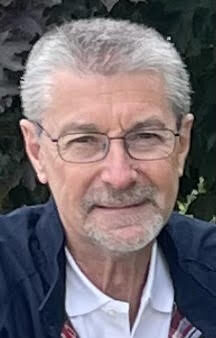BY DALE GOWING
After decades in the newspaper business, I’m seeing the English language through a refocused lens.

Call it journalism vs. survival English. The former is that process I spent 45 years striving to perfect as a reporter and editor, caring more about the substance of a news story than whether its sentences have dangling participles or unnecessary commas. The latter – survival English – is what I’m dedicated to these days, five years after retiring from a newspaper career that spanned 45 years. “Survival English” is how we refer to English as a Second Language classes that I and several colleagues teach at Mitchell Community College.
Our students are adults from around the globe – currently, that includes Mexico, Colombia, Ecuador, Venezuela, Costa Rica, China, Cameroon, Brazil, Ukraine, Russia and Belarus. They are here for varied reasons – escaping dangerous and hopeless conditions in their home countries, for instance – but all are united in the goal of seeking better lives for their families.
In their native countries, many of them held jobs of great esteem – doctors, lawyers, engineers, professors – but felt obliged to sacrifice those careers to come here and, essentially, start over. That’s because the graduate degrees and medical licenses they worked so hard to obtain at home are often deemed invalid here. Recertification in the U.S. becomes a daunting, years-long process.
Still, they persist. And, usually, the first step they must take is improving their English.
Native English speakers – those of us born and raised here — generally cannot fathom the difficulty of learning how to speak North American English. It’s a dialect pocked with slang, colloquialisms, idioms and words that have four different meanings. And just when a student thinks they’ve got a grasp on our grammar, along comes a sentence that throws out the rules.
As I’ve told students countless times, my admiration for their efforts to learn our confounding language is great. Most of them have at least a very basic grasp of English, and our goal is to bump that up a level or two or three so that they can better communicate with co-workers and neighbors the community at large. Again, it’s survival English.
I actually began this gig before retirement, offering an evening civics class for ESL students nine years ago. The thinking was that a basic understanding of our government, institutions and community would serve them well as they make their way through life in the United States.
Since then several of our students have obtained their U.S. citizenship; numerous others have progressed enough with their English to begin the journey toward studying for a license or certification to resume the careers they forfeited to come to the U.S.
Without a doubt, their dedication to improving their English, thus making their lives easier in this country, is admirable.
It certainly is humbling to those of us who work to teach them – and I’m appreciative of a “second career” that has me looking at English through a different lens.
Dale Gowing retired in 2018 after 25 years as editor of the Mooresville Tribune. Before that, he was a reporter and editor at the Charlotte Observer and in suburban Detroit.
Editor’s Note: This column was originally published in the July edition of “IFN Monthly.”




Hi Dale! So wonderful to use your skills in helping others. Thank you for your service. Great to hear from you!